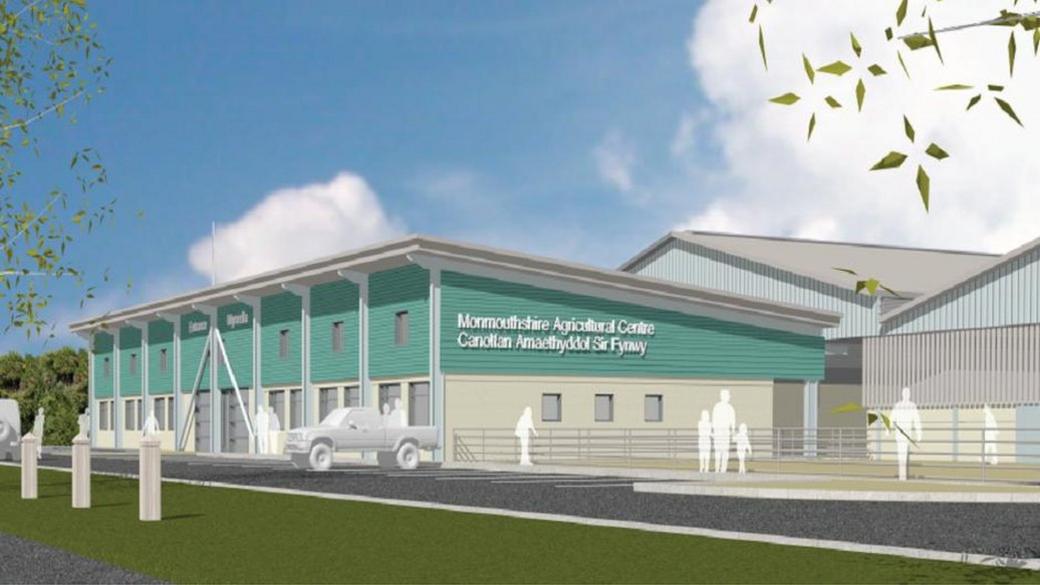Farming in Wales: Fears for the future of livestock marts
- Published
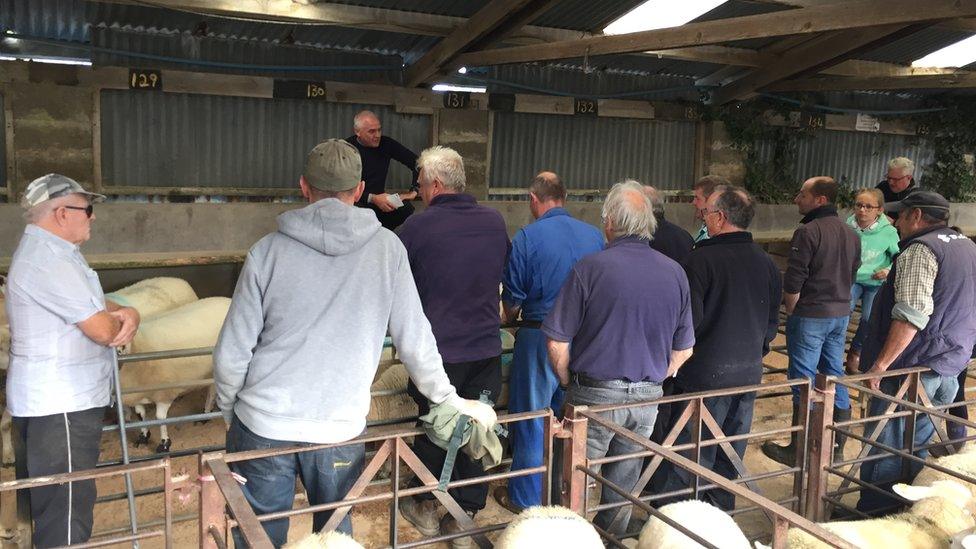
Dwindling business and rising costs have led to the closure of Cardigan livestock mart
There are fears for the future of Wales' livestock marts and the towns that host them, according to a farmers' union.
Cardigan market is to hold its final sheep and cattle sales on Monday, and Cowbridge mart in the Vale of Glamorgan is also set for closure.
It is thought farmers are increasingly bypassing the marts to sell directly to abattoirs and meat processors.
The Farmers Union of Wales (FUW) said it expected further "casualties".
Dyfan Davies of JJ Morris auctioneers, which runs Cardigan mart, said closing the site had been "the hardest of decisions" to make, but that rising costs and a lack of livestock had made it inevitable.
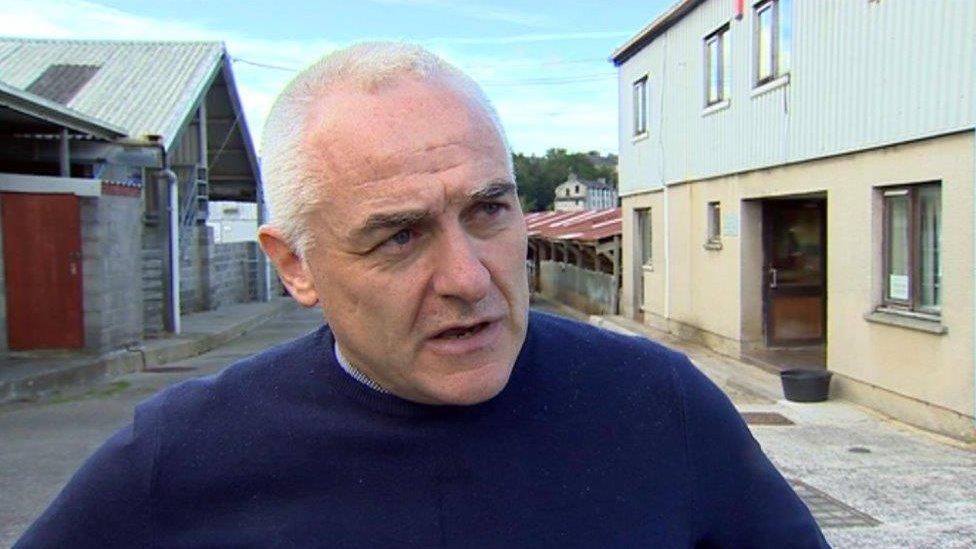
Auctioneer Dyfan Davies predicts smaller markets closing and centralising at a big regional centre
Cattle numbers in particular have dwindled in recent years due to the problems caused locally by bovine TB - affected farms are prevented from selling their stock through marts to try to stop the disease from spreading.
Many visiting the Cardigan mart also blame the large supermarkets for refusing to buy through livestock markets, forcing the abattoirs that supply them to deal directly with farmers.
Mr Davies claimed the marts were the best way to get a fair price, adding: "In the next five to 10 years we may see a lot more of these smaller markets closing with one big regional centre instead to reduce costs."
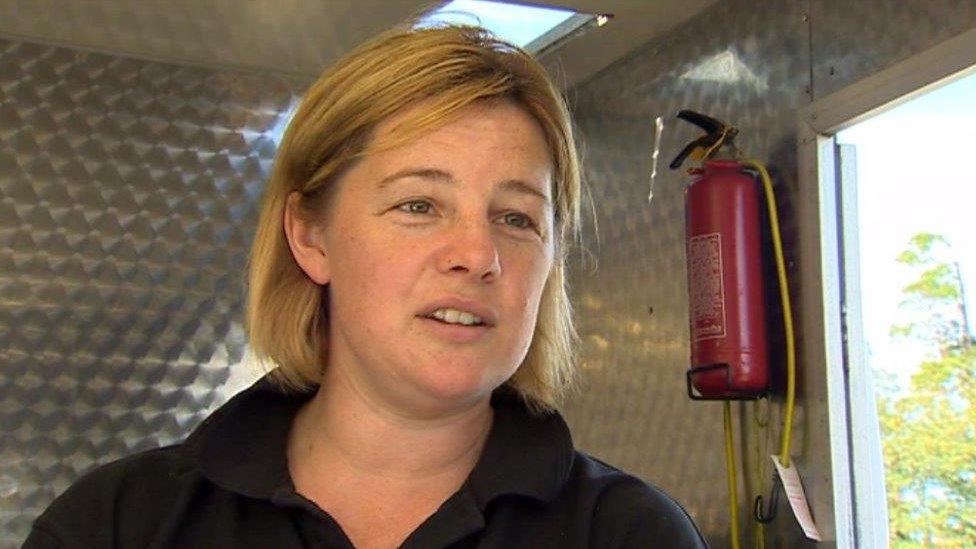
"It's important for farmers to get together as they can be very isolated," says Teleri Jenkins-Davies
Teleri Jenkins-Davies, who runs a catering van at the Cardigan mart, said it was a "blow to the entire community".
"It's a place where farmers can... have a bit of banter and share their problems too. It's important for them to get together as they can be very isolated on their farms," she added.
Farmer Elfan Owens, from Aberporth, recalled how busy it used to be: "You couldn't park anywhere in town and the shops were full."
In Cowbridge, the Vale of Glamorgan council wants to build a car park for shoppers in place of the mart, meaning a much longer drive for local farmers to a livestock auction - the closest alternatives are Raglan in Monmouthshire, Carmarthen or Brecon.
FUW deputy president Brian Thomas said it was "essential to keep as many of the marts going as possible", possibly through more specialised sales held less frequently.
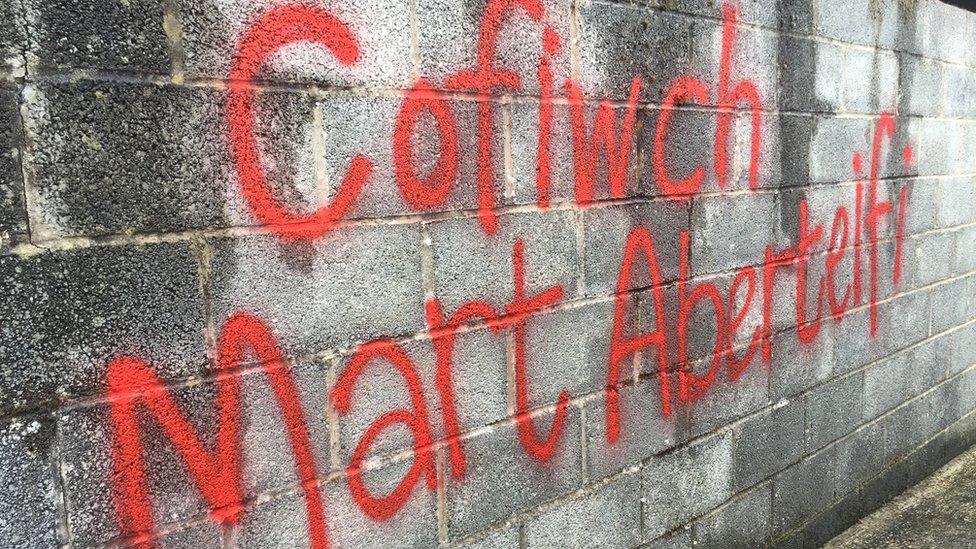
"Remember Cardigan Mart" has been written in Welsh on the market, adapting the "Cofiwch Dryweryn" slogan which commemorates the flooding of a Welsh village
The number of livestock markets operating in England and Wales fell from 677 in 1963 to 110 in 2019.
In Wales - there are 35, but not all of them are struggling.
Speaking to BBC Radio Wales' Country Focus, Rhys Davies, chairman of the Welsh Livestock Auctioneers Association, said sheep trading had recently improved at Machynlleth market.
"There is a huge benefit in having a number of small markets dotted around the country, especially at a time when there's so much focus on our carbon footprint," he said.
- Published30 July 2019
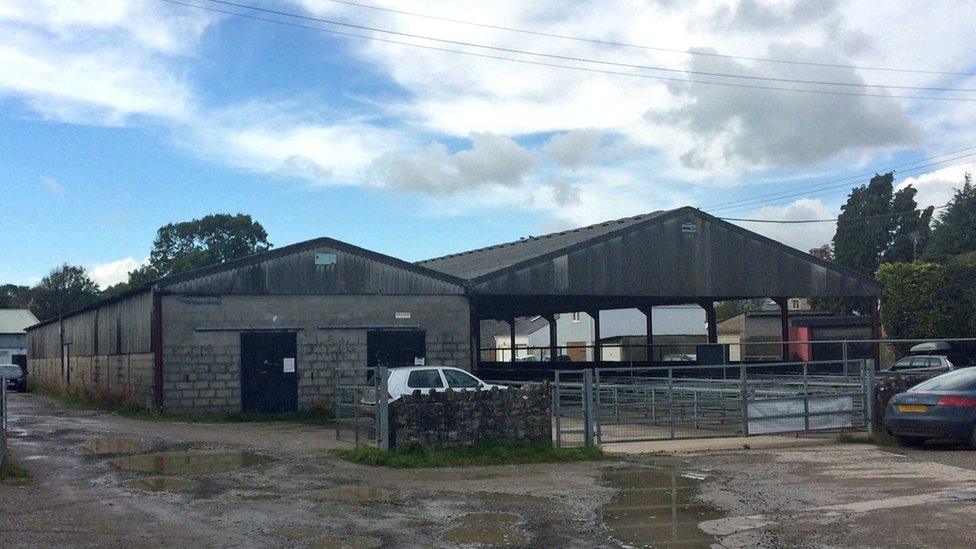
- Published24 February 2013
